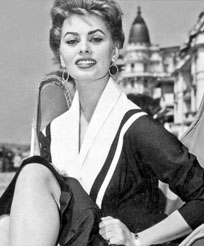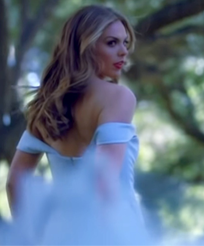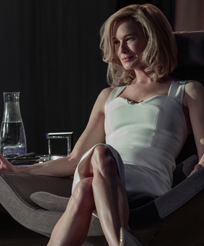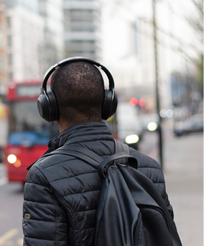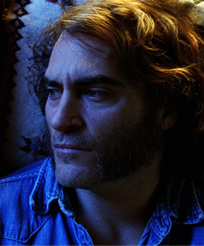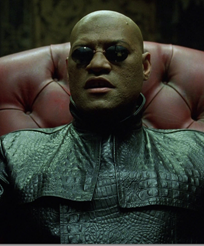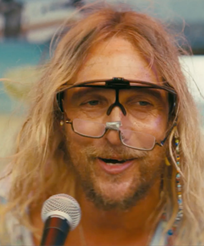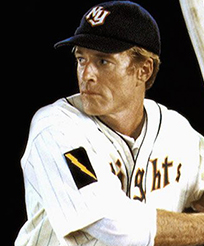I’ve been watching The Bachelor franchise for over a decade now, and the claim non-believers
always make, as if it’s something I don’t know, is that it’s “not real”—and why do I like it if
it’s not real?
Telling someone who watches reality TV that it’s not real these days is like telling a cigarette smoker that tobacco cause cancer: it’s totally fucking annoying and very much besides the point. Because the truth is, yes, reality TV is not real in what I’ll call our world—the world beyond the confines of the show. Yet it is real within its own. As John Jeremiah Sullivan once suggested, The Real World is not reflective of real life but the reality of being on a reality TV show. This is precisely how people can really truly fall in love on The Bachelor, while hardly ever sustaining a relationship outside of it. (It’s also why flings on vacation never work in real life, unless you happen to be starring in a Richard Linklater trilogy.)
The problem for The Bachelor occurs when real life seeps into the reality of the show—itself a surreality, propped up by an anachronistic fairy tale narrative and a codified set of methods expressly designed to manipulate people into falling in love. I wrote a few years ago, in the wake of Juan Pablo’s season, that the show would do anything to protect this increasingly fragile narrative—even if they have to discredit their own Bachelor to do it. Back then, that instinct was pretty harmless. On the current season of The Bachelorette, it’s become toxic.
If you haven’t been keeping up: this is the first time in the franchise’s history we’ve had a black protagonist, 31-year-old attorney Rachel Lindsay. Consequently, this means a larger majority of the suitors are also black. You would think this would be a good thing for The Bachelor—a step in the right direction. But what’s good for the show in a macro sense—i.e. what it means for the culture-at-large—is not necessarily good for the show at its most fundamental level.
Case in point is an ongoing conflict between contestants Kenny King (a black man) and Lee Garrett (a white Southern alleged racist who lifts weights in jeans and cowboy boots). Without getting too much in the weeds here, I’ll just say that the two engaged in pretty standard Bachelor spat that escalated when Lee told Rachel that Kenny had been “aggressive.” Barbs were traded, but it was clear to anyone with two eyeballs and a brain—including the men on the show—that Lee’s primary purpose was to instigate Kenny.
The feud reached its breaking point on this week’s two-part, four-hour (!) episode, during an explosive two-on-one date with Rachel, Kenny and Lee. At one point, Lee blatantly lies to Rachel about Kenny having a “dark side,” and how he tried to physically pull him out of a van. The word “aggressive” is used again, as is the word “violent.” I don’t have to spell out why this is more problematic than your run-of-the-mill reality TV tiff. But more problematic still is how the show dealt with the conflict. As Doreen St. Félix points out in The New Yorker, “it is cheap, even for ‘The Bachelorette,’ to equate nasty gaslighting with garden-variety television villainy.” (Does this remind you of CNN? It probably should.)
For the longest time, I, like many fans of the show, wondered why there hadn’t been a black Bachelor or Bachelorette, or more than just the token non-white suitors. It felt so outdated, of another time—an inaccurate reflection of 21st century America. But watching this season, I realized something: isn’t that kind of the point? The Bachelor is, was and never has been a reflection of our moment. It’s always been a fantasyland, spinning a Disney-fied and therefore almost inherently whitewashed fairy tale. How can a real reckoning with race in this country exist in a world like that? Racial politics are about as out of place on The Bachelor as a legitimate discussion of bestiality would be in Beauty and the Beast.
Now, I’m not saying this to exonerate The Bachelor from their handling of this situation (not to mention, the Bachelor in Paradise situation). And I'm not saying there shouldn't continue to be more diversity on the show. But I’m not indicting The Bachelor, either. It would be wrong to expect them to deal with the complexity of these issues in any real or effective way. That’s just not what this show does. And to those who would argue that we should stop watching in principle, consider this: here is a reality TV property that is, in a sense, propogating a post-racism vision of the world (or, a world) while trying to occlude the very real realities surrounding race in America.
Oddly relevant, don't you think?
Telling someone who watches reality TV that it’s not real these days is like telling a cigarette smoker that tobacco cause cancer: it’s totally fucking annoying and very much besides the point. Because the truth is, yes, reality TV is not real in what I’ll call our world—the world beyond the confines of the show. Yet it is real within its own. As John Jeremiah Sullivan once suggested, The Real World is not reflective of real life but the reality of being on a reality TV show. This is precisely how people can really truly fall in love on The Bachelor, while hardly ever sustaining a relationship outside of it. (It’s also why flings on vacation never work in real life, unless you happen to be starring in a Richard Linklater trilogy.)
The problem for The Bachelor occurs when real life seeps into the reality of the show—itself a surreality, propped up by an anachronistic fairy tale narrative and a codified set of methods expressly designed to manipulate people into falling in love. I wrote a few years ago, in the wake of Juan Pablo’s season, that the show would do anything to protect this increasingly fragile narrative—even if they have to discredit their own Bachelor to do it. Back then, that instinct was pretty harmless. On the current season of The Bachelorette, it’s become toxic.
If you haven’t been keeping up: this is the first time in the franchise’s history we’ve had a black protagonist, 31-year-old attorney Rachel Lindsay. Consequently, this means a larger majority of the suitors are also black. You would think this would be a good thing for The Bachelor—a step in the right direction. But what’s good for the show in a macro sense—i.e. what it means for the culture-at-large—is not necessarily good for the show at its most fundamental level.
Case in point is an ongoing conflict between contestants Kenny King (a black man) and Lee Garrett (a white Southern alleged racist who lifts weights in jeans and cowboy boots). Without getting too much in the weeds here, I’ll just say that the two engaged in pretty standard Bachelor spat that escalated when Lee told Rachel that Kenny had been “aggressive.” Barbs were traded, but it was clear to anyone with two eyeballs and a brain—including the men on the show—that Lee’s primary purpose was to instigate Kenny.
The feud reached its breaking point on this week’s two-part, four-hour (!) episode, during an explosive two-on-one date with Rachel, Kenny and Lee. At one point, Lee blatantly lies to Rachel about Kenny having a “dark side,” and how he tried to physically pull him out of a van. The word “aggressive” is used again, as is the word “violent.” I don’t have to spell out why this is more problematic than your run-of-the-mill reality TV tiff. But more problematic still is how the show dealt with the conflict. As Doreen St. Félix points out in The New Yorker, “it is cheap, even for ‘The Bachelorette,’ to equate nasty gaslighting with garden-variety television villainy.” (Does this remind you of CNN? It probably should.)
For the longest time, I, like many fans of the show, wondered why there hadn’t been a black Bachelor or Bachelorette, or more than just the token non-white suitors. It felt so outdated, of another time—an inaccurate reflection of 21st century America. But watching this season, I realized something: isn’t that kind of the point? The Bachelor is, was and never has been a reflection of our moment. It’s always been a fantasyland, spinning a Disney-fied and therefore almost inherently whitewashed fairy tale. How can a real reckoning with race in this country exist in a world like that? Racial politics are about as out of place on The Bachelor as a legitimate discussion of bestiality would be in Beauty and the Beast.
Now, I’m not saying this to exonerate The Bachelor from their handling of this situation (not to mention, the Bachelor in Paradise situation). And I'm not saying there shouldn't continue to be more diversity on the show. But I’m not indicting The Bachelor, either. It would be wrong to expect them to deal with the complexity of these issues in any real or effective way. That’s just not what this show does. And to those who would argue that we should stop watching in principle, consider this: here is a reality TV property that is, in a sense, propogating a post-racism vision of the world (or, a world) while trying to occlude the very real realities surrounding race in America.
Oddly relevant, don't you think?






